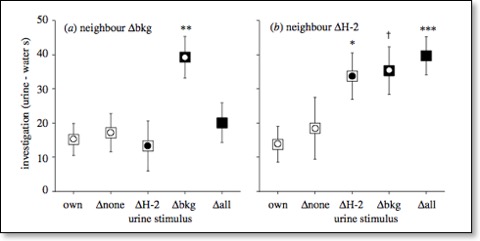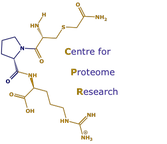MHC is not involved in individual recognition

Hurst J. L., Thom M. D., Nevison C. M., Humphries R. E., Beynon R. J (2005) MHC odours are not required or sufficient for recognition of individual scent owners. Proc Biol Sci. 272, 715-724 [PUBMED] [PDF]
To provide information about specific depositors, scent marks need to encode a stable signal of individual ownership. The highly polymorphic major histocompatibility complex (MHC) influences scents and contributes to the recognition of close kin and avoidance of inbreeding when MHC haplotypes are shared. MHC diversity between individuals has also been proposed as a primary source of scents used in individual recognition. We tested this in the context of scent owner recognition among male mice, which scent mark their territories and countermark scents from other males. We examined responses towards urine scent according to the scent owner’s genetic difference to the territory owner (MHC, genetic background, both and neither) or genetic match to a familiar neighbour. While urine of a different genetic background from the subject always stimulated greater scent marking than own, regardless of familiarity, MHC-associated odours were neither necessary nor sufficient for scent owner recognition and failed to stimulate countermarking. Urine of a different MHC type to the subject stimulated increased investigation only when this matched both the MHC and genetic background of a familiar neighbour. We propose an associative model of scent owner recognition in which volatile scent profiles, contributed by both fixed genetic and varying non-genetic factors, are learnt in association with a stable involatile ownership signal provided by other highly polymorphic urine components.
